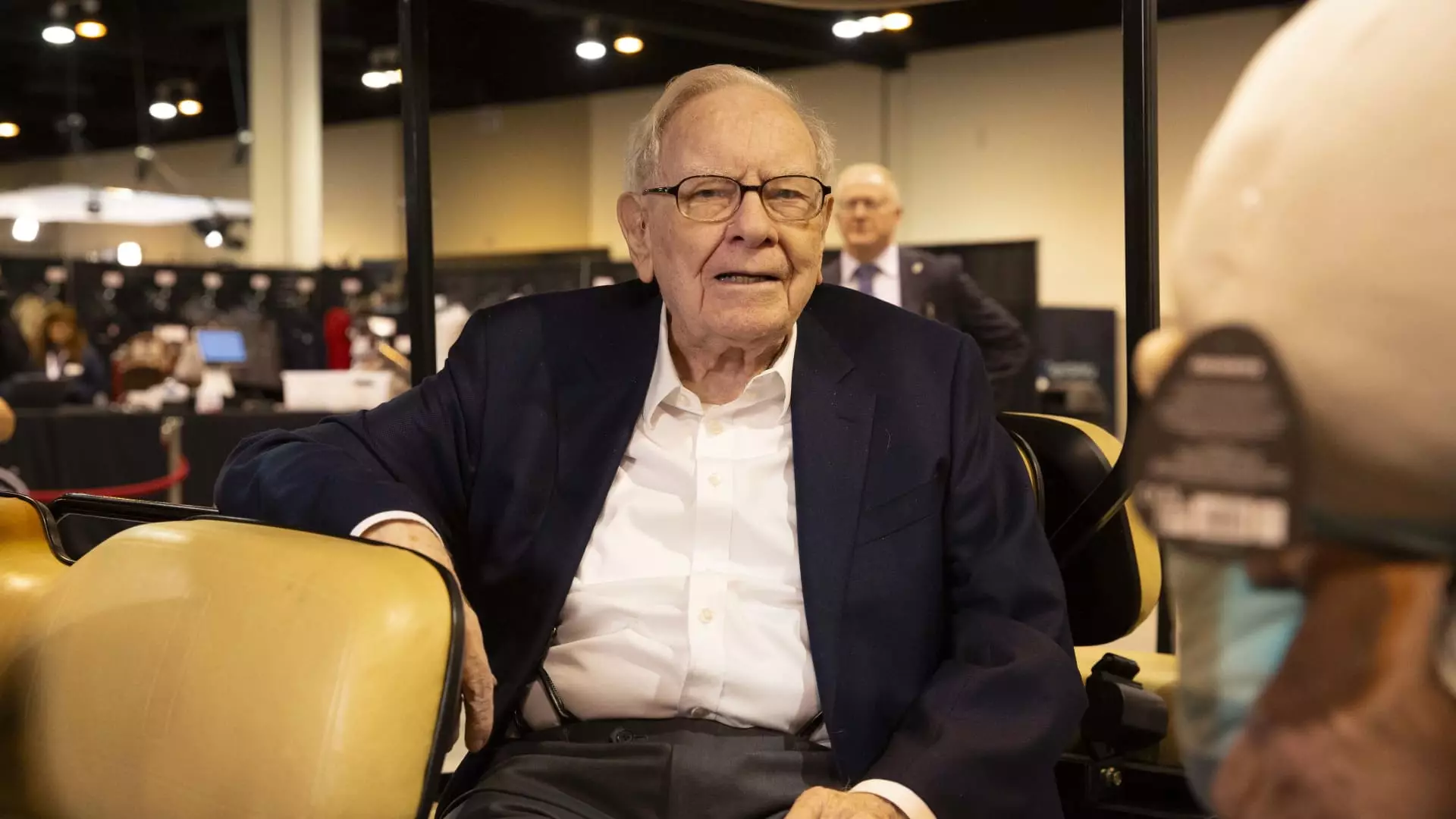In a tumultuous financial environment marked by plummeting big-name stocks, there remains a singular beacon of stability: Warren Buffett’s Berkshire Hathaway. In a year when the S&P 500 index has spiraled downward by 6%, Berkshire has risen to the occasion with a remarkable 17% return year-to-date. It’s not merely the statistics that demand our attention, but the broader implications for investors who might still be clinging to their faltering portfolios. The paradox is striking—while the frenzy of investment in flashy tech stocks has failed many, Buffett’s strategy rooted in traditional value investing continues to shine. This begs the critical question: Is Berkshire’s success merely an anomaly, or does it highlight a profound shift in investor priorities?
Buffett’s Investment Philosophy: Wisdom or Stubbornness?
One of the cornerstones of Buffett’s investment ethos is his aversion to dividends. His belief that reinvesting shareholder profits yields greater long-term value is both lauded and criticized. In a world where instant gratification and quick returns often take precedence, the absence of dividends can appear almost archaic. Can a strategy anchored in patience genuinely survive in an age increasingly reliant on immediacy? Critics argue this position alienates a growing demographic of income-seeking investors. The launch of the VistaShares Target 15 Berkshire Select Income ETF accentuates this dilemma; it seeks to provide monthly income distributions by selling call options, revealing a clear intent to cater to a more demanding investor base. Herein lies the irony: are we witnessing an evolution of Buffett’s doctrine or a desperate attempt to adapt to a changing tide?
The ETF Revolution: A Double-Edged Sword?
The emergence of the VistaShares Target 15 Berkshire Select Income ETF, which allocates a significant portion to Berkshire Hathaway alongside top-performing stocks, represents a pivotal shift in the investment landscape. This fund fundamentally acknowledges that while Buffett’s judgment may be unrivaled, the investor community is increasingly impatient for results. The ETF is designed to deliver 15% annual income, a promising return that contrasts sharply with the traditional model upheld by Berkshire. However, one must scrutinize the ethics behind this investment vehicle: does it dilute the essence of Buffett’s investing philosophy, essentially commodifying his approach to appeal to a broader audience? In this era of quick returns, investors must tread cautiously; reliance on ETFs and income strategies could lead to a superficial understanding of the underlying assets.
The Resilient Allure of the “Oracle of Omaha”
Despite these conflicting narratives, Buffett’s personal allure remains profound. Known for his uncanny ability to foresee market trends, he is often celebrated as the archetype of an investor who has mastered the art of common sense. The upcoming Berkshire Hathaway shareholder meeting in Omaha is poised to amplify this narrative, drawing in both die-hard fans and skeptics alike. Many flock to hear firsthand from the man himself, hoping to glean wisdom that could enhance their own investing strategies. Yet, the question lingers: Is the reverence for Buffett rooted in genuine admiration for his intellect, or does it hint at a troubling cult of personality that could obscure more rational investment choices?
The Reality of Market Volatility and Its Consequences
The prevailing volatility in the stock market, especially following significant political shifts and economic uncertainty, accentuates the importance of quality investing. Buffett’s steady hand has proven to be a counterbalance to the chaos that has gripped the broader market, evidenced by the 185% return from Berkshire Hathaway over the past five years, a figure that starkly surpasses the S&P’s performance. Yet, beneath this surface of success lies an unsettling reality: how many investors truly possess the patience or insight required to emulate Buffett’s methodologies? The dichotomy of those who succeed versus those who fail amplifies the existential crises faced by countless retail investors who have fallen prey to the allure of quick profits.
In an age where American equity is often seen as the golden ticket, it’s crucial to reassess what it means to invest wisely. The focus should shift from blind adherence to notorious figures like Buffett toward an understanding of the underlying principles that drive real investment success. Are we doomed to forever idolize those who navigate the market with skill, or can we foster a culture of informed and discerning investments that underlies true financial literacy? As we observe the rise of figures and funds that promise the best of Buffett’s success with an immediate return, the imperative for critical examination has never been more significant.

